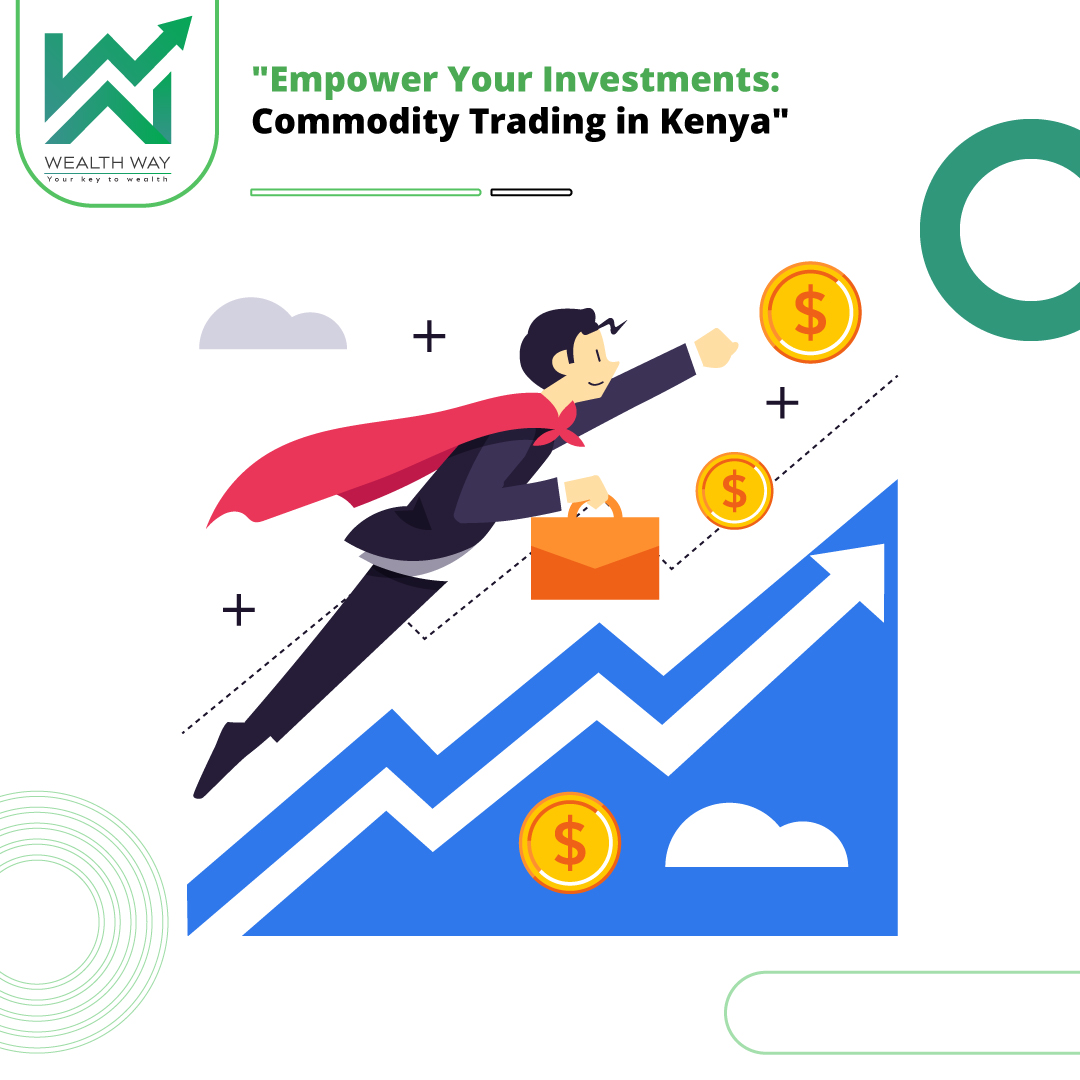
Empower Your Investments: Commodity Trading in Kenya
Commodity trading in Kenya presents a unique opportunity for investors looking to diversify their portfolios and capitalize on the country's rich natural resources. From agricultural products like coffee and tea to minerals such as gold and oil, Kenya's commodity markets offer a diverse range of investment options. Understanding the dynamics of commodity trading in Kenya can empower investors to make informed decisions and navigate the complexities of this burgeoning market.
Overview of Commodity Trading in Kenya
Commodity trading in Kenya encompasses a wide range of natural resources and agricultural products that are traded both domestically and internationally. Kenya boasts a diverse economy supported by sectors such as agriculture, mining, and energy, all of which contribute to its robust commodity markets.
Key Commodities Traded in Kenya
Agricultural Products: Kenya is renowned for its production of tea, coffee, flowers, and horticultural products, which are major exports. These commodities play a significant role in the country's economy and are actively traded on both local and international commodity exchanges.
Minerals and Mining: Kenya has substantial mineral resources including gold, titanium, coal, and gemstones. The mining sector is growing, attracting investment in exploration, extraction, and exportation of these valuable commodities.
Energy: Oil exploration and production have gained momentum in recent years, with discoveries in the Turkana region and ongoing efforts to commercialize oil reserves. Energy commodities such as crude oil and natural gas are becoming increasingly important in Kenya's commodity trading landscape.
Factors Driving Commodity Trading in Kenya
Several factors contribute to the growth and attractiveness of commodity trading in Kenya:
Natural Resource Wealth: Kenya's abundant natural resources provide a solid foundation for commodity trading, attracting both domestic and foreign investors interested in resource extraction and exportation.
Infrastructure Development: Improvements in infrastructure, including transportation networks and port facilities, facilitate the efficient movement of commodities within Kenya and to international markets.
Government Policies: Proactive government policies aimed at promoting investment, enhancing regulatory frameworks, and supporting economic diversification have created a conducive environment for commodity trading.
Global Demand: Increasing global demand for Kenya's agricultural products, minerals, and energy resources presents lucrative opportunities for commodity traders to capitalize on export markets and international trade.
Benefits of Commodity Trading in Kenya
Investing in commodities in Kenya offers several advantages for investors seeking to diversify their investment portfolios and achieve financial growth:
Diversification: Investing in commodities offers a way to broaden your investment horizons beyond conventional assets like stocks and bonds, reducing risk and potentially boosting gains. Similarly, Kenyan traders can trade securely through the trading platforms provided by Wealthway FX, diversifying their investments and managing risk effectively.
Potential for High Returns: Commodities can experience significant price fluctuations due to supply and demand dynamics, geopolitical factors, and market speculation, offering profit opportunities.
Hedge Against Inflation: Certain commodities, such as precious metals and energy resources, historically act as a hedge against inflation, preserving the value of investments during economic uncertainties.
Global Market Access: Participation in commodity trading provides exposure to global markets and international trade networks, enabling investors to capitalize on global economic trends and market opportunities.
Challenges and Considerations
While commodity trading in Kenya offers attractive opportunities, it is not without challenges:
Price Volatility: Commodity prices can be volatile, influenced by factors such as weather conditions, geopolitical events, and global economic trends, which may impact investment returns.
Regulatory Environment: Understanding and navigating regulatory frameworks governing commodity trading in Kenya is essential to compliance and risk management.
Market Risks: To safeguard investments, it's crucial to thoroughly evaluate and manage market risks, including liquidity risk, counterparty risk, and operational risks. By choosing a reputable broker like Wealthway FX, traders can benefit from expert guidance to mitigate these risks and make informed investment decisions.
Conclusion
Commodity trading in Kenya presents a compelling opportunity for investors seeking to diversify their portfolios and capitalize on the country's natural resource wealth. From agricultural products to minerals and energy resources, Kenya's commodity markets offer a diverse range of investment options with the potential for attractive returns. By understanding the dynamics, opportunities, and challenges of commodity trading in Kenya, investors can empower themselves to make informed decisions, manage risks effectively, and contribute to the growth of Kenya's economy through responsible and sustainable investment practices.
Choose From Various Account Types To Suit Your Trading Style CREATE ACCOUNT
Commodity Trading in Dubai || Stock Market Brokers in India || Forex Trading in Ireland || Forex Trading in Nigeria || Australia Forex Broker || Forex Trading in Somalia || Forex Trading Success in India || Forex Trading in Kuwait || Forex Trading in Saudi Arabia || Forex Trading in Jaipur || Saudi Arabia Forex Trading Boom || Best Forex Brokers in Kuwait || Forex Brokers in Germany || Commodity Trading in Germany || Best Forex Trading Platform in India ||